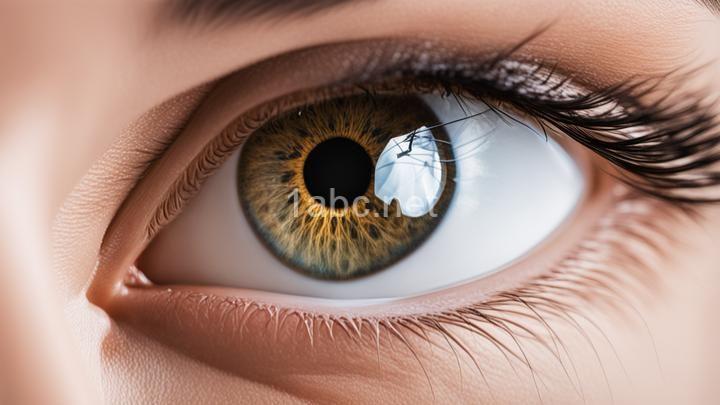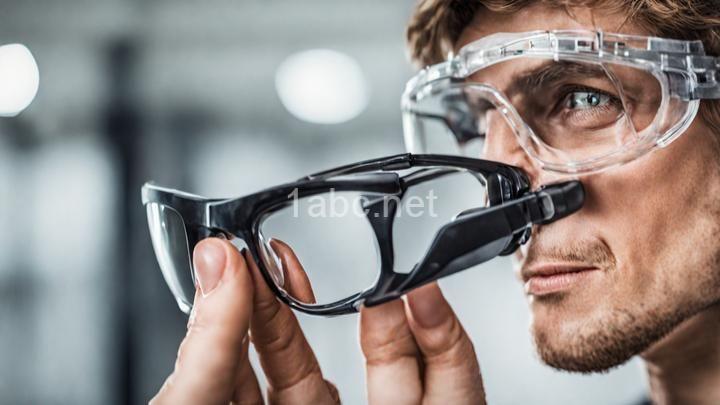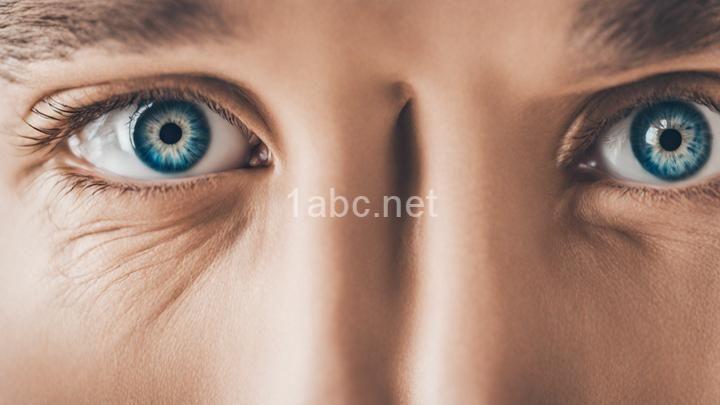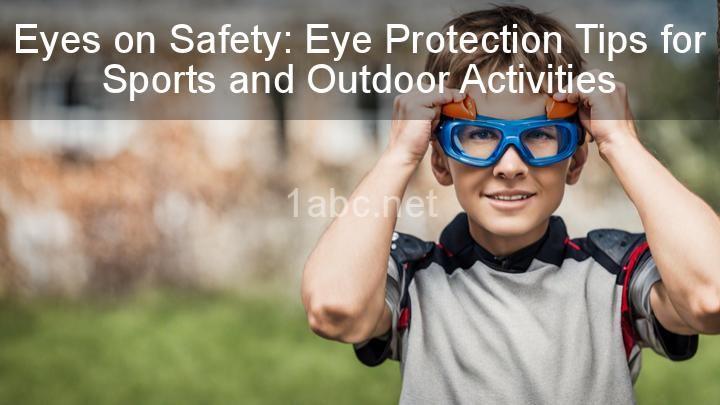Essential Tips for Maintaining Healthy Eyes

Introduction:
Welcome to dorenelashay9177, where we care about your eye health! In this blog post, we will delve into the world of healthy eyes and provide you with essential tips to ensure that your peepers stay in top-notch condition. From understanding the basic anatomy of the eye to practical advice on maintaining good eye hygiene, we've got you covered. So, grab a cup of tea and let's embark on this eye-opening journey together!
I. Understanding Eye Health:
Before we dive into the tips, let's take a moment to understand the marvelous world of our eyes. Our eyes are not only the windows to our souls but also complex organs that allow us to see and perceive the world around us. The eye has various components, including the cornea, iris, lens, and retina, each playing a crucial role in the process of vision.
However, our eyes are not invincible, and they can be susceptible to various conditions that may impact our overall health. Common eye conditions such as cataracts, glaucoma, and age-related macular degeneration can pose significant challenges. This is why it's essential to prioritize regular eye exams to detect any potential issues early on. So, don't skip those visits to your friendly eye doctor!
II. Tips for Maintaining Healthy Eyes:
1. Eat a Balanced Diet:
Remember the famous saying, "You are what you eat"? Well, it holds true for your eyes too! A balanced diet can work wonders for your eye health. In particular, incorporating foods rich in vitamins A, C, E, and omega-3 fatty acids can be immensely beneficial. So, load up on leafy greens like spinach and kale, indulge in citrus fruits such as oranges and grapefruits, and don't forget to include fish like salmon and tuna in your diet.
2. Protect Your Eyes from UV Rays:
While we love soaking up the sun, it's important to shield our eyes from harmful ultraviolet (UV) rays. Prolonged exposure to UV rays can lead to conditions like cataracts and macular degeneration. To combat this, make sure to wear sunglasses with UV protection whenever you're out and about. Pair those shades with a fashionable wide-brimmed hat, and you're all set!
3. Practice Good Hygiene:
Good hygiene is not only important for overall health but also for the health of your eyes. Ensure that you wash your hands thoroughly before touching or rubbing your eyes to minimize the risk of infections. Additionally, it's best to avoid sharing makeup or contact lenses with others as this can also increase the chances of eye-related complications.
4. Take Regular Breaks from Screens:
In today's digital age, most of us spend a significant amount of time glued to screens. However, this prolonged screen time can take a toll on our eyes. To alleviate eye strain, it's essential to follow the 20-20-20 rule. Every 20 minutes, take a break and focus your gaze on something at least 20 feet away for about 20 seconds. This simple practice can give your eyes the much-needed rest they deserve. Additionally, adjusting screen brightness and using blue light filters can also help reduce eye fatigue.
5. Maintain Proper Lighting:
Illumination plays a vital role in maintaining healthy eyes. When reading or working on close-up tasks, it's crucial to have adequate lighting to prevent eye strain. Consider using task lighting, which focuses light directly on your workspace. Also, be mindful of excessive glare from bright lights or reflections, as they can cause discomfort and make it challenging to concentrate on the task at hand.
6. Stay Hydrated:
Did you know that dehydration can affect your eyes too? When our bodies are dehydrated, our eyes can become dry and irritated. To keep your eyes properly lubricated, make sure to drink enough water throughout the day. So, cheers to hydration and healthy eyes!
III. Other Considerations:
1. Quit Smoking:
If you needed another reason to quit smoking, here it is: smoking is detrimental to your eye health. It increases the risk of developing cataracts, macular degeneration, and even optic nerve damage. If you're a smoker, consider taking steps to quit. There are various resources available, from support groups to nicotine replacement therapies, that can assist you on your smoke-free journey.
2. Get Quality Sleep:
We all know the feeling of tired, dry eyes after a night of poor sleep. Lack of quality sleep can lead to eye fatigue, dryness, and even eye spasms. To ensure your eyes are well-rested and rejuvenated, establish a healthy sleep routine. Create a relaxing environment, limit screen time before bed, and aim for seven to eight hours of quality sleep each night.
3. Exercise Regularly:
Regular exercise not only benefits our cardiovascular health but also promotes good blood circulation, which is crucial for maintaining healthy eyes. Engaging in activities that get your heart pumping, such as walking, swimming, or cycling, can contribute to optimal eye health. So, lace up those sneakers and get moving!
Conclusion:
Congratulations on reaching the end of this eye-opening journey! We've covered the basics of eye health, from understanding the incredible anatomy of the eye to providing practical tips for maintaining healthy eyes. Remember to eat a balanced diet, protect your eyes from UV rays, practice good hygiene, take regular breaks from screens, maintain proper lighting, stay hydrated, quit smoking, get quality sleep, and exercise regularly.
By incorporating these tips into your daily routine, you can ensure that your eyes remain in tip-top shape for years to come. So, take care of those precious peepers and embrace the world with clear vision and good eye health. Wishing you all the best on your journey to healthier eyes. Stay bright-eyed and bushy-tailed!
FREQUENTLY ASKED QUESTIONS
What are some common eye problems that I should be aware of?
There are several common eye problems that you should be aware of. Here are a few of them:
-
Myopia (Nearsightedness): This is a condition where distant objects appear blurry, while close objects can be seen clearly. It occurs when the eyeball is longer than normal or when the cornea is too curved. Myopia can usually be corrected with glasses, contact lenses, or refractive surgery.
-
Hyperopia (Farsightedness): This is the opposite of myopia. People with hyperopia can see distant objects more clearly than close objects. It occurs when the eyeball is shorter than normal or when the cornea is too flat. Like myopia, hyperopia can be corrected with glasses, contact lenses, or refractive surgery.
-
Astigmatism: This is a condition that causes blurred or distorted vision, both at near and far distances. It happens when the cornea is irregularly shaped or the lens inside the eye is curved unevenly. Astigmatism can be corrected with glasses, contact lenses, or refractive surgery.
-
Presbyopia: This is an age-related condition that affects the ability to focus on close objects. It usually occurs around the age of 40 and is caused by the natural aging process of the lens in the eye. Presbyopia can be corrected with reading glasses, bifocals, or progressive lenses.
-
Cataracts: Cataracts are a clouding of the lens in the eye, which leads to blurred vision. They commonly occur with aging but can also be caused by certain medical conditions or medications. Cataracts can be treated with surgery, where the cloudy lens is replaced with an artificial one.
It's important to remember that if you experience any changes in your vision or have concerns about your eye health, it's best to consult with an eye care professional for a proper diagnosis and treatment plan.
How often should I get my eyes checked by an eye doctor?
It is generally recommended to have a comprehensive eye exam performed by an eye doctor at least once every two years. However, this frequency may vary depending on certain factors. For individuals who are over the age of 60, have a family history of eye diseases, or have existing eye conditions, it is advised to have an eye exam annually or as recommended by the eye doctor. Additionally, if you experience any changes in your vision, such as blurry vision, difficulty seeing at night, or eye pain, it is important to seek immediate attention from an eye doctor. Regular eye exams are crucial for maintaining good eye health and detecting any potential eye conditions or diseases in their early stages.
What are some effective ways to prevent eye strain from digital screens?
To prevent eye strain from digital screens, there are several effective ways you can try:
-
Adjust the screen brightness: Make sure the brightness of your screen is comfortable for your eyes. Avoid using screens that are too bright or too dim, as both can strain your eyes.
-
Use proper lighting: Ensure that the lighting in your room is adequate. Avoid working in a dark room or in direct sunlight, as both can cause eye strain. Opt for soft, ambient lighting that evenly illuminates the room.
-
Take regular breaks: Give your eyes a rest by taking frequent breaks from looking at the screen. Follow the 20-20-20 rule: every 20 minutes, look away from the screen and focus on an object that is at least 20 feet away for 20 seconds. This helps reduce eye fatigue.
-
Adjust screen distance and position: Position your screen at a comfortable distance. Ideally, it should be about an arm's length away from your eyes. Also, ensure that the screen is at eye level or slightly below to avoid straining your neck and eyes.
-
Blink frequently: When we stare at screens, we tend to blink less often, which can lead to dry and irritated eyes. Make a conscious effort to blink frequently to keep your eyes moist and prevent dryness.
-
Use the 20-20-20 rule: Every 20 minutes, look away from the screen and focus on an object that is at least 20 feet away for 20 seconds. This helps reduce eye fatigue.
-
Use blue light filters: Consider using blue light filters on your devices or using specialized glasses that block blue light. Blue light emitted by screens can cause eye strain and disrupt sleep patterns. These filters can help reduce the strain caused by blue light.
-
Adjust text size and contrast: If you find yourself squinting or straining to read text on the screen, adjust the text size and contrast settings to make it more comfortable for your eyes.
-
Keep your screen clean: Regularly clean your screen to remove dust and smudges, as they can make it harder to see and strain your eyes.
-
Visit an eye care professional: If you frequently experience eye strain or have persistent discomfort, it's a good idea to schedule an eye exam. An eye care professional can assess your eyes and provide personalized recommendations.
Remember, everyone's eyes are unique, so it's important to find what works best for you. Try incorporating these tips into your daily routine to prevent eye strain and keep your eyes healthy.
Are there any specific foods or supplements that can promote healthy eyes?
Absolutely! There are indeed certain foods and supplements that can promote healthy eyes. Here are a few to consider:
-
Leafy green vegetables: Spinach, kale, and collard greens are rich in lutein and zeaxanthin, which are antioxidants that help protect the eyes from harmful UV rays.
-
Fish: Omega-3 fatty acids found in fish like salmon, tuna, and mackerel can help prevent dry eyes and maintain overall eye health.
-
Citrus fruits and berries: Oranges, lemons, and berries are packed with vitamin C, which is essential for maintaining the health of blood vessels in the eyes.
-
Nuts and seeds: Almonds, walnuts, and flaxseeds are great sources of vitamin E and omega-3 fatty acids, which can reduce the risk of age-related macular degeneration.
-
Carrots: While they may not give you superpowers, carrots are rich in beta-carotene, which the body converts into vitamin A. This vitamin plays a crucial role in preventing night blindness and maintaining good vision.
In addition to these foods, certain supplements can also support eye health. However, it's important to consult with your healthcare provider before starting any new supplements, as they can interact with medications or have side effects.
Remember, a balanced diet that includes a variety of fruits, vegetables, whole grains, lean proteins, and healthy fats is key to maintaining overall health, including your precious peepers!


